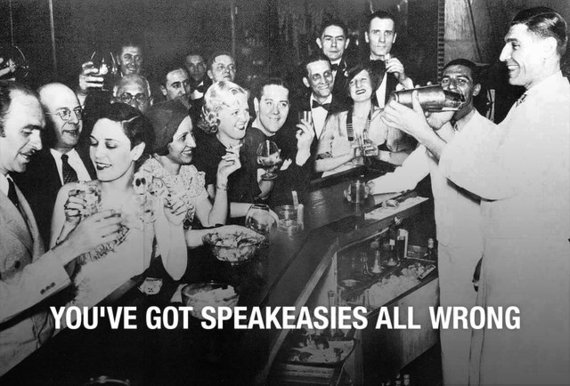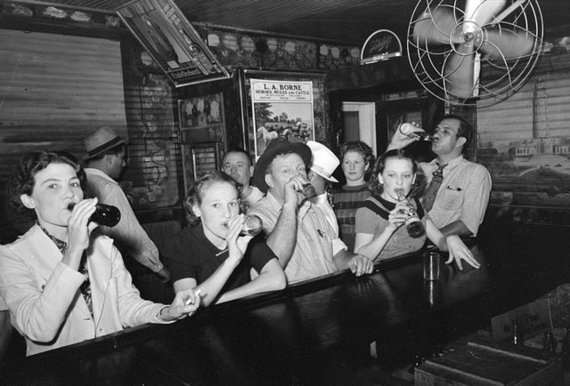
CREDIT: The Arts and Humanity
December 5th marks what was the most important event in American history: the end of Prohibition. The 21st Amendment, which grants us the right to imbibe and shut down the dry America of the 1920s, celebrates 80 glorious years of existence today. We figured this was the right time to clear up some facts you might have backwards on the dark, booze-less (but not really) age it ended. If your knowledge of speakeasies begins and ends with that completely legal one behind a donut shop in your hood, you're gonna want to listen up.
It wasn't just temperance activists who got Prohibition passed
WWI-era anti-German sentiment played a role, since a lot of beer was coming out of Germany and importing it became seen as paying the Kaiser. Racists were also pro-Prohibition, because they didn't want black people to have any hooch, because -- surprise! -- they were crazy racist.
Blind pigs existed long before 1920
Poor Maine had been suffering through Prohibition for almost 70 years by the time the rest of the nation went dry, so it's no surprise the "blind pig" code originated there. One enterprising saloonkeeper discovered he could circumvent the law if he charged patrons for tickets to see a "blind pig", and then just happened to hand out complimentary glasses of rum. The rest of the country was happy to crib his style when the Volstead Act reared its ugly head.
You didn't always use a password to get into a speakeasy
There were also cards that served as evidence of membership for regulars, like these.
The flappers frequenting speakeasies weren't barfly veterans
Bars were mostly seen as dude territory up until the 1920s. It was the rise of speakeasies that made them acceptable hangouts for women, who were previously stuck at home sipping whatever booze their husbands brought back.
Drinking might've been underground, but speakeasy patrons wouldn't take just any cocktail
The practice of ordering brand name booze actually started during Prohibition, since people were wary about what was in the unregulated well liquor the bootleggers supplied. They were also too insecure to just ask for a Long Island Iced Tea.
